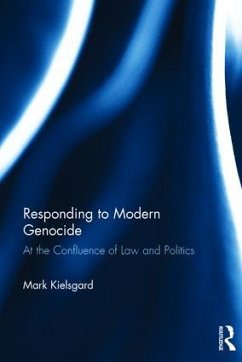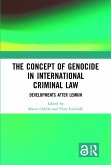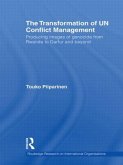Developments in the understanding and treatment of genocide through the twentieth century have involved a combination of politics, public opinion, social trends, and economic development, and led to the substantive law of genocide and the assumption of international jurisdiction. This book analyzes incidences of genocide and mass atrocities, focusing on the political factors involved in modern counter-genocide efforts. Drawing on incidences of genocide and mass atrocity such as the Holocaust, the Rwandan genocide, and the Armenian genocide, Mark Kielsgard adopts a conceptual model that reveals the political factors which impact the international law of genocide, such as barriers and catalysts to transitional justice and the politics of genocide denial. As a work which provides a focused picture of those influences and their significance to genocide studies, this book will be of great use and interest to students and researchers in international criminal law, conflict studies, and conflict resolution.
Bitte wählen Sie Ihr Anliegen aus.
Rechnungen
Retourenschein anfordern
Bestellstatus
Storno








